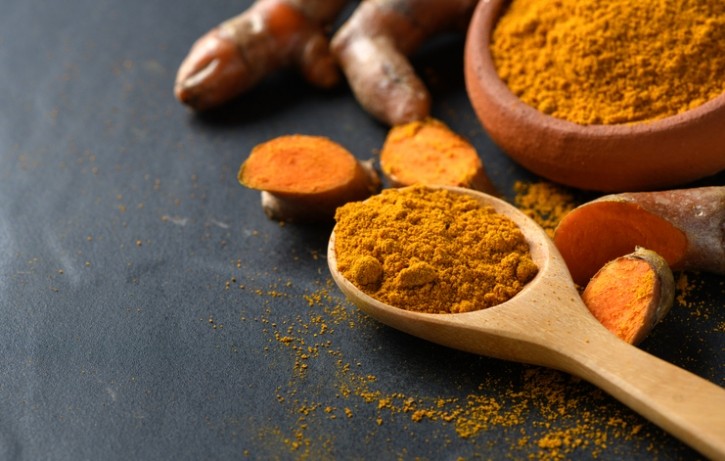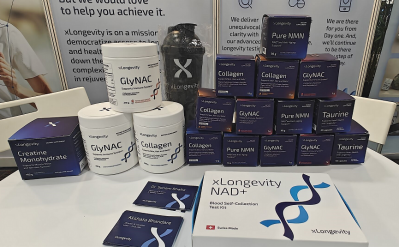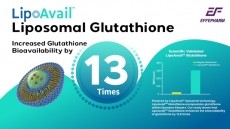Curcumin can help combat inflammatory chronic metabolic diseases – meta-analysis

Researchers in Korea conducted a meta-analysis of randomised controlled trials (RCTs) and found that curcumin has been shown to significantly reduce inflammation and improve metabolic health. Studies reveal its potential to lower blood sugar levels, improve insulin resistance, and decrease harmful cholesterol, making it potentially effective solution for managing chronic metabolic diseases.
“This review clearly observed that curcumin intake could significantly reduce major inflammatory markers of CRP (seven of ten meta-analyses of RCTs), IL-6 (five of eight meta-analyses of RCTs), and TNF-α (six of nine meta-analyses of RCTs). In light of this review finding that curcumin intake significantly lowered MDA levels in five of six meta-analyses, curcumin intake appeared to have antioxidant activity,” wrote the researchers in Nutrients.
C-reactive protein (CRP) is a protein made by the liver, which increases when there's inflammation in the body; Interleukin 6 (IL-6) is a protein that regulates immune responses.
Elevated IL-6 levels could indicate inflammation or cardiovascular diseases; Tumour necrosis factor α (TNF-α) is a pro-inflammatory cytokine, a protein structure that can cause chronic and acute inflammatory responses; Malondialdehyde (MDA) levels are a marker of oxidative stress, an imbalance of free radicals and antioxidants in the body that leads to cell damage.
Chronic diseases can be defined as long-term (3 months or more) health conditions that develop over time. Factors like genetics, unhealthy dietary patterns, and stress can lead to chronic metabolic diseases, which include health issues like obesity, type 2 diabetes, and cardiovascular conditions.
Recent research highlights chronic low-grade inflammation as a crucial underlying cause. Unlike acute inflammation, which is a short-term response to injury or infection, chronic inflammation persists without external pathogens, often due to excess fat, stress, and ageing.
This ongoing immune activity disrupts normal metabolic processes, leading to insulin resistance and other metabolic issues.
Due to the relationship between oxidative stress and inflammation, anti-inflammatory and antioxidant treatment could offer a benefit for the prevention and treatment of chronic inflammatory metabolic disease.
Curcumin is the main active component of turmeric (Curcuma longa), which exerts antioxidant, anti-inflammatory, and anti-aging effects. The anti-inflammatory and antioxidant properties of curcumin can play a key role in the prevention and treatment of chronic inflammatory metabolic diseases.
To examine the effects of curcumin on chronic inflammatory metabolic disease, researchers in Korea’s Gyeongin National University of Education and Gyeongsang National University evaluated meta-analyses of RCTs.
The study
A literature search was conducted in the PubMed/MEDLINE database on 7 August 2023. Studies up to 31 July 2023 included 54 meta-analyses of curcumin RCTs for inflammation, antioxidant, glucose control, lipids, anthropometric parameters (physical indicators such as body weight for assessing health conditions), blood pressure, depression, and cognitive function.
The researchers found that curcumin intake could significantly reduce major inflammatory markers like CRP, IL-6, interleukin 1β (IL-1β), and TNF-α levels.
The cytokine interleukin 1β (IL-1β) plays a crucial role in the body's inflammatory response. It is essential for fighting off infections, but it can also worsen damage during long-term illnesses and sudden tissue injuries.
“A meta-analysis of RCTs by Dehzad et al. 2023 showed the anti-inflammatory effect of curcumin/curcuminoids/turmeric. Subjects taking 60–2000 mg/day of curcumin or 150–1500 mg/day of curcuminoids or 900–3000 mg/day of turmeric showed reductions in CRP, TNF-α, and IL-6, with no difference in interleukin 1β (IL-1β) in 46 publications for CRP, 23 publications for TNF-α, and 20 publications for IL-6,” wrote the researchers.
Additionally, recent meta-analysis of RCTs by Dehzad et al. 2023 showed the antioxidant effect of curcumin (80–3000 mg/day) or curcuminoids (180–1500 mg/day) or turmeric (1500–3000 mg/day) with a decrease in MDA.
Curcumin intake also appeared to be effective in glucose control. Results of the meta-analysis showed that curcumin intake significantly reduced fasting blood glucose (FBG) levels, homeostasis model assessment of insulin resistance (HOMA-IR), glycated haemoglobin (HbA1c) levels, and insulin levels.
HOMA-IR measures the insulin level needed in the blood to maintain normal sugar levels. It helps diagnose insulin resistance, the early stage of type 2 diabetes.
The researchers also found that curcumin intake appeared to have positive effects on depression and cognitive function.
“Fusar-Poli et al. 2020 showed an improvement in depression after curcumin intake of 150–1500 mg/day for 4–12 weeks in nine publications and anxiety symptoms after curcumin intake of 500–1000 mg/day for 4–12 weeks in four publications with large effect size,” said the researchers.
Furthermore, working memory in three publications was enhanced after curcumin intake of 80–180 mg/day for 8–16 weeks compared with the placebo.
Source: Nutrients
DOI: https://doi.org/10.3390/nu16111728
“Is Curcumin Intake Really Effective for Chronic Inflammatory Metabolic Disease? A Review of Meta-Analyses of Randomized Controlled Trials”
Authors: Young-Min Lee and Yoona Kim.
Active Lifestyle Nutrition will be a major topic at Growth Asia Summit 2024 – join us in Singapore to learn about market opportunities and glean insights from major industry experts. Find out more here.













